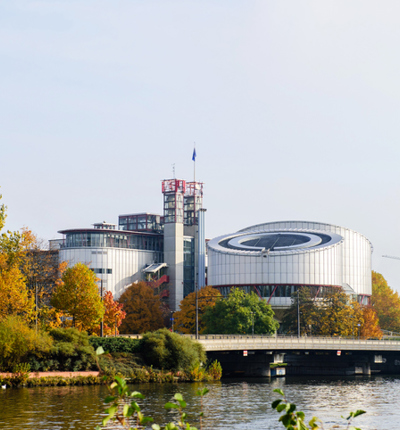
Grand Chamber of the ECHR to hear mass surveillance case
The Grand Chamber of the European Court of Human Rights (ECHR) will hear today the case brought by The Bureau of Investigative Journalism (TBIJ) against the government's use of mass surveillance.
Posted on 10 July 2019
This may be the most important case with regards to the protection of journalistic communications and the protection of our sources to be heard in the past 20 years. As journalists we must be able to speak freely to our sources without fear of surveillance."
Rachel Oldroyd, managing editor of TBIJ
The Bureau of Investigative Journalism, alongside a number of organisations including human rights groups, brought their case against the UK’s mass surveillance programme following revelations by whistle-blower Edward Snowden that GCHQ was undertaking extensive surveillance of internet communications.
TBIJ, represented by law firm Leigh Day, were successful in their challenge in the ECHR in September 2018. The case has been referred to the Grand Chamber for further consideration.
Snowden, a former CIA operative, revealed in 2013 that a number of countries including the UK were using range of mass surveillance techniques. These include a rolling buffer, known as TEMPORA, which stored the bulk data it intercepted, regardless of whether there was any grounds for suspicion.
The Bureau of Investigative Journalism argue that this interception and subsequent access to privileged data is unlawful as it fails to protect journalistic confidentiality as is required by the right to freedom of expression under Article 10 of the European Convention of Human Rights, and that the surveillance regime breaches the right to privacy under Article 8 of the Convention.
TBIJ argue that the mass gathering of data including confidential journalistic information could jeopardise investigations as journalists can no longer operate with any sense of confidentiality either before or after publication or offer any level of anonymity to their sources.
The ECHR found in September 2018 that the government’s surveillance programme breached TBIJ’s rights under Article 10 and highlighted in its ruling that “freedom of expression constitutes one of the essential foundations of a democratic society and that the safeguards to be afforded to the press are of particular importance”. The ECHR also found in September that the surveillance programme breached Article 8 because there is insufficient oversight and safeguards in place.
Rachel Oldroyd, managing editor of the Bureau said:
“This may be the most important case with regards to the protection of journalistic communications and the protection of our sources to be heard in the past 20 years. As journalists we must be able to speak freely to our sources without fear of surveillance. The UK government’s system of mass collection and storage of all our communications is a severe threat to this cornerstone of our profession and a severe intrusion upon the freedom of the press.
“It is ironic that on the very day the Bureau is making this case against the British government’s surveillance regime in the highest court in Europe, the same government is hosting a global summit on press freedom.”
Rosa Curling, solicitor with law firm Leigh Day, who is representing the Bureau said:
"Journalistic privilege is a key aspect to press freedom. Fundamental to a functioning democratic society is the ability of journalists to communicate privately and freely with their sources. The government must not be allowed to snoop into these privileged communications. Our client hopes very much that the Grand Chamber will uphold and extend further the principles recognised by the European Court last year."

